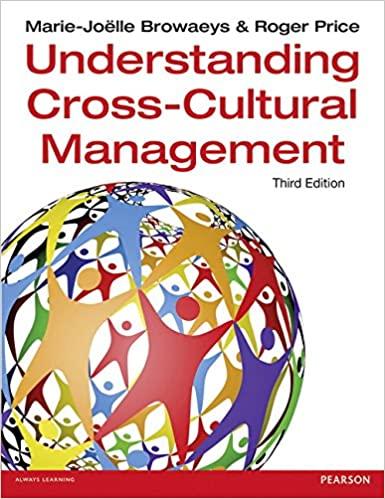Earley argues that culture has less to do with determining values and more to do with meanings.
Question:
Earley argues that culture has less to do with determining values and more to do with meanings. When doing so, he refers to Rohner’s definition of culture: ‘The totality of equivalent and complementary learned meanings maintained by a human population, or by identifiable segments of the population, and transmitted from one generation to the next.’
Compare this definition of culture with that made by Hofstede ( Chapter 1 ): ‘The collective programming of the mind which distinguishes the members of one human group from another’.
In which ways do you consider these definitions to be complementary and/or oppositional in nature?
Fantastic news! We've Found the answer you've been seeking!
Step by Step Answer:
Related Book For 

Understanding Cross Cultural Management
ISBN: 9781292015897
3rd Edition
Authors: Marie Joelle Browaeys, Roger Price
Question Posted:





